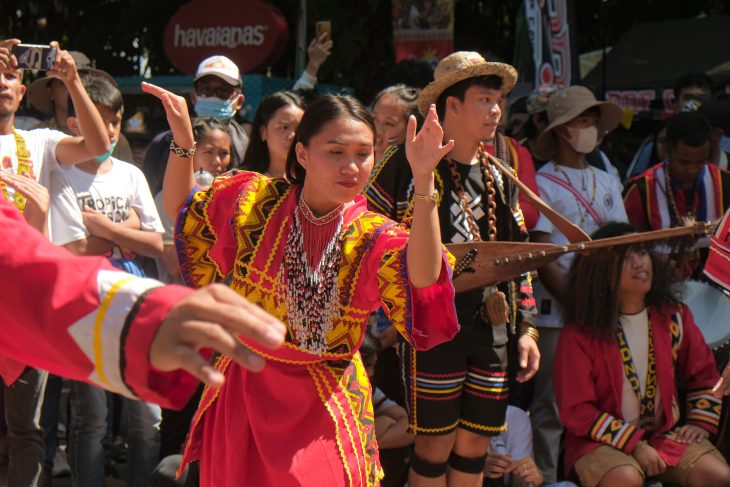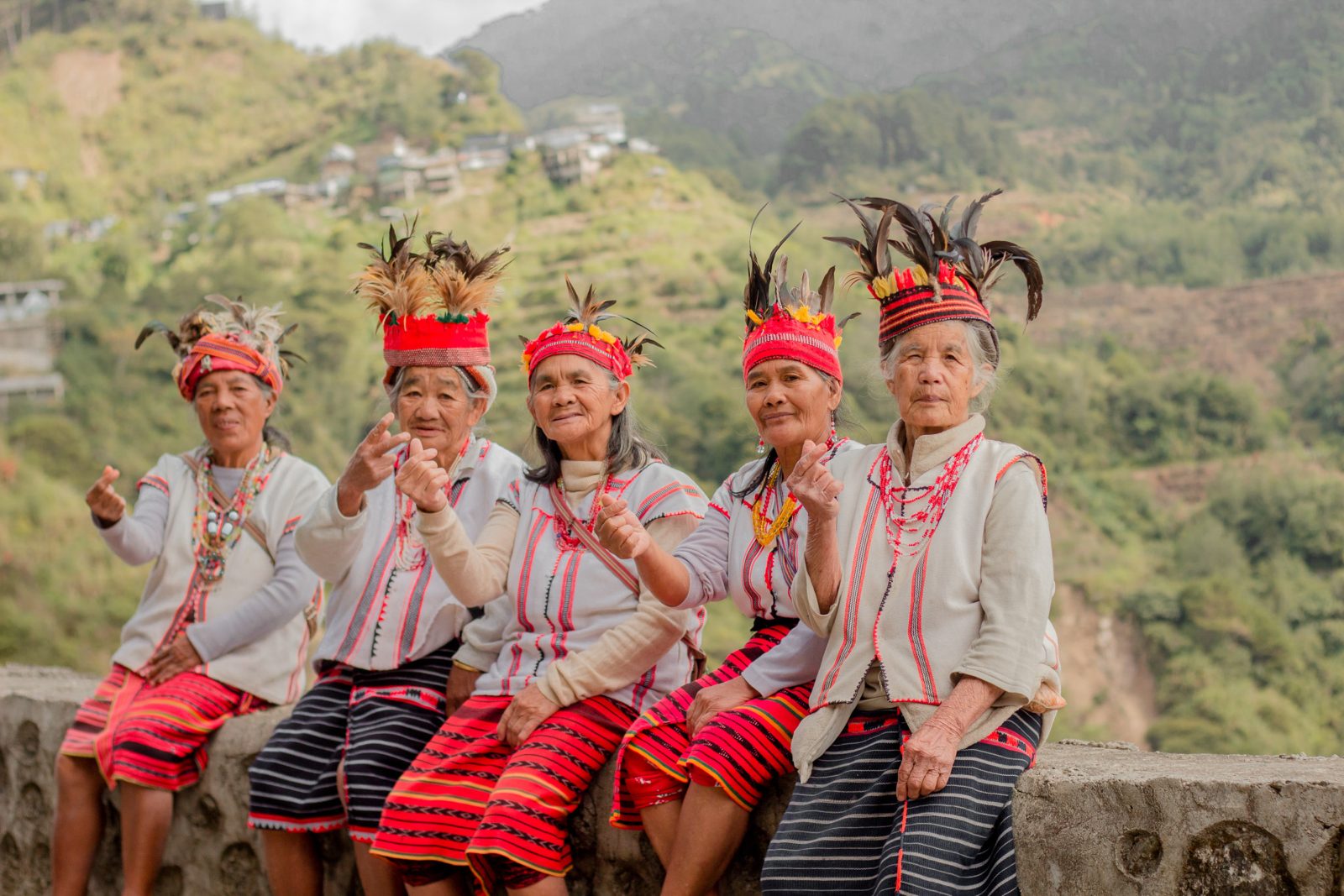Marketing writer by day and struggling poet by night. She…
When we think of heroes, we often picture warriors on battlefields or leaders rallying people to a cause. But heroism comes in many forms—some fought with swords, others with words, science, or even sheer compassion.
In Philippine history, countless women have played critical roles in shaping the nation, proving that bravery knows no gender.
As we celebrate Women’s Month, let’s spotlight some of the most remarkable female heroes in the Philippines. Their bravery, wisdom, and steadfast dedication to our nation were crucial in advancing freedom, education, and women’s rights.
Here are 15 inspiring female Filipino heroes and their contributions to our country.
Celebrating Female Heroes in the Philippines This Women’s Month
These resilient women have left their mark on Philippine history, from warriors and revolutionaries to activists and scientists.

Gabriela Silang (1731-1763)
Gabriela Silang was a fearless warrior and revolutionary leader who played a crucial role in the fight against Spanish colonial rule. After Diego Silang’s assassination, she upheld her husband’s cause and led the resistance in Ilocos.
As the first female leader of a Filipino revolt, she defied societal norms and commanded forces against the Spanish, earning the title “Joan of Arc of Ilocandia.” Her leadership and courage on the battlefield made her a symbol of defiance and strength.
Melchora Aquino (1812–1919)
Melchora Aquino, better known as “Tandang Sora,” was a true hero of the Philippine Revolution. Even in her old age, she didn’t hesitate to help the Katipunan fighters, offering them food, shelter, and medical care. Because of her kindness and bravery, she became known as the “Mother of the Katipunan.”
Her home became a safe haven for revolutionaries, and she stood by them every step of the way. But when the Spanish authorities found out about her role, they arrested her and sent her into exile in Guam.
Years later, after the Philippines finally gained independence, she was allowed to return home, where she lived the rest of her life with honor and respect.
Maria Ylagan Orosa (1893–1945)
A pioneering food scientist, inventor, and war hero, Maria Orosa Ylagan revolutionized the Philippine food industry with her innovative contributions.
She developed banana ketchup as a local alternative to imported condiments and created Soyalac and Darak, nutrient-rich food products to combat malnutrition.
During World War II, she used her expertise to secretly smuggle food to Filipino and American prisoners of war, aiding in their survival. Tragically, she was killed during the Battle of Manila in 1945.
Pura Villanueva-Kalaw (1886–1954)
A journalist, feminist, and suffragist, Pura Villanueva-Kalaw was at the forefront of the women’s rights movement in the Philippines. She led the campaign for women’s suffrage, which resulted in Filipino women gaining the right to vote in 1937.
As a writer, she used her platform to advocate for social change, gender equality, and national progress. Beyond activism, she also became the first-ever winner of the Manila Carnival Queen, proving that beauty and intelligence could go hand in hand. Her work continues to inspire Filipino women striving for equality and empowerment.
Gregoria de Jesús (1875–1943)
Gregoria de Jesús, also known as the “Lakambini of the Katipunan,” was a courageous revolutionary and the wife of Andres Bonifacio. She was responsible for safeguarding secret Katipunan documents, recruiting new members, and ensuring the movement’s survival.
After Bonifacio’s execution, she continued the fight for independence, enduring hardship and persecution. She later became an advocate for remembering the sacrifices of revolutionaries.
Teresa Magbanua (1868–1947)
Teresa Magbanua, aka “Visayan Joan of Arc,” was a military leader who took up arms against Spanish, American, and Japanese forces. She was one of the few women who actively participated in combat during the Philippine Revolution, leading troops into battle with exceptional bravery.
After the war against Spain, she continued fighting during the Philippine-American War and later supported guerrilla resistance in World War II. Her courage, leadership, and military prowess made her a legendary figure in Philippine history.
Josefa Llanes Escoda (1898–1945)
Josefa Llanes Escoda was a social worker, educator, and the founder of the Girl Scouts of the Philippines. During World War II, she used her influence to smuggle supplies and aid to Filipino and American prisoners of war, defying the Japanese occupation.
Arrested and tortured for her resistance efforts, she was eventually executed in 1945. Despite her tragic end, her legacy lives on in the organizations she helped establish, continuing to inspire young Filipino girls to lead lives of service and patriotism.
Apolinaria Mabini (1848–1935)
Apolinaria Mabini was a revolutionary nurse and healer crucial to the Philippine Revolution. She dedicated her life to treating wounded soldiers and providing medical care to those fighting for independence.
Her efforts in supporting the revolutionary movement highlight women’s essential but often overlooked contributions to war.
Encarnacion Alzona (1895–2001)
A pioneering historian, educator, and feminist, Encarnacion Alzona was the first Filipina to earn a doctorate degree. A staunch advocate for women’s rights, she played a significant role in the campaign for women’s suffrage in the Philippines.
As a historian, she championed the preservation of Philippine heritage and advocated for gender equality in education. Her scholarly contributions and activism made a lasting impact on Philippine history.
Magdalena Leones (1920–2016)
Magdalena Leones was a Filipina spy who played a crucial role in the resistance against Japanese forces during World War II. As an intelligence officer, she transported weapons, relayed vital messages, and helped smuggle resources to aid Filipino guerrillas.
She was among the few women to receive the Silver Star for bravery in wartime, cementing her legacy as one of the Philippines’ greatest female war heroes.
Trinidad Tecson (1848–1928)
Trinidad Tecson, the “Mother of Biak-na-Bato,” was a fierce revolutionary who fought against Spanish colonial rule. She participated in multiple battles, proving that women could stand alongside men in the fight for independence.
Later, she became a leader of the Red Cross during the Philippine-American War, tending to wounded soldiers. Her contributions to warfare and humanitarian efforts make her a remarkable figure in Philippine history.
Marcela Agoncillo (1860–1946)
Marcela Agoncillo is best remembered for sewing the first official Philippine flag while in exile in Hong Kong, alongside her daughter and a friend. Her work symbolized the Filipino people’s struggle for independence and remains an enduring part of national history.
Beyond this, she was deeply involved in supporting the revolutionary movement, using her position to assist Filipino exiles and patriots.
Patrocinio Gamboa (1865–1953)
A revolutionary warrior and courier, Patrocinio Gamboa was vital in transporting the first official Philippine flag during the Iloilo Revolution.
She bravely disguised herself to smuggle weapons and supplies to Filipino troops, evading capture multiple times.
Her daring acts of resistance contributed significantly to the fight for Philippine independence.
Remedios Gomez-Paraiso (1919–2014)
Known as “Commander Liwayway,” Remedios Gomez-Paraiso defied societal expectations by becoming a guerrilla leader during World War II. She led resistance against Japanese occupation, proving that women could be fierce warriors.
Her leadership and determination continue to inspire those fighting for justice and equality.
Corazon Aquino (1933–2009)
As the first female President of the Philippines, Corazon Aquino played a pivotal role in restoring democracy after the Marcos dictatorship. She symbolized peaceful resistance, leading the 1986 People Power Revolution that ousted Ferdinand Marcos.
Her presidency marked the beginning of a new era for Philippine democracy, and she remains one of the most influential women in the country’s history.
Honoring the Legacy of Female Philippine Heroes

As we celebrate Women’s Month, it’s important to remember that the fight for equality, justice, and progress continues. The stories of these female Philippine heroes show us that courage comes in many forms—on the battlefield, in the halls of government, through scientific discoveries, and in everyday acts of resistance and care.
Their legacy challenges us to be fearless, to use our voices, and to fight for a better future. Let’s honor these women by learning from their stories, passing them on, and continuing to push for a world where women are empowered to lead, inspire, and create change.
This Women’s Month, let’s celebrate the past, recognize the present, and empower the future. After all, men don’t just write history—it’s shaped by the fearless women who dared to stand up and make a difference.
What's Your Reaction?
Marketing writer by day and struggling poet by night. She is fueled by coffee, travel, and BTS.


